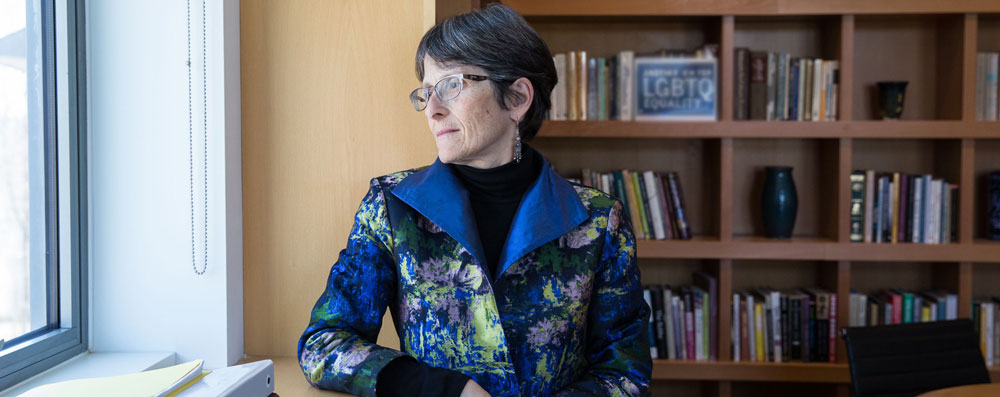Community Blog Grieving in the First Person Plural

To speak at all in this moment feels tricky, treacherous even – but I feel compelled to try.
I alternate between feeling there is really nothing to say, and feeling there is too much to say – what has happened, what is happening in Jerusalem is such a terrifying and tangled web of human suffering that to tug on any one thread – any one aspect of this tragedy that is unfolding – unravelling – before our eyes feels impossible, inadequate, or even worse. I fear that my own words – inevitably partial – will somehow do damage or distort.
So I begin by praying that whatever words and deeds I might offer bring light and hope into the growing darkness that is threatening Jerusalem and her inhabitants.
The horror of yesterday’s attack in Har Nof needs no elaboration. It speaks for itself. Our hearts break for those who were killed in the attack – Moshe Twersky, Aryeh Kupinsky, Kalman Levine, Avraham Goldberg, Zidan Sayif, zichronam livracha — as well as all those wounded and the families and friends of the victims whose lives have been forever altered.
The horror of the attack itself is compounded by the horror of those who have responded with apologetics and justifications or, more chilling still, with unabashed praise and jubilation.
What I find myself wanting to ask today is that here, in this community, we find a way to grieve in the first person plural – to link our own lives to the lives of our brothers and sisters in Jerusalem, and throughout Israel, to feel the comfort and concern and humbling sense of responsibility that is part of the deep grammatical structure of our lives as Jews.
I did not know any of the worshippers who were attacked yesterday and if we had known each other, we would have disagreed about a great many things.
But, for all our arguments, it matters to me that across vast distances of time, space, and sensibility —
We have prayed in the first person plural.
Eloheinu v’elohei avoteinu. Our God and God of our fathers.
We have remembered in the first person plural.
Avadim hayinu l’pharoah b’mitzrayim. We were slaves to Pharaoh in Egypt.
We have confessed in the first person plural.
Avinu malkeinu hatanu l’fanecha. Our Father, our King, we have sinned before You.
We have trembled at the responsibility we bear for each other and for the fate of our people in the first person plural.
Mipnei hata’eynu galinu me’artzeynu. Because of our sins, we have been exiled from our land.
I know I was not the only one who thought of Baruch Goldstein yesterday morning as I digested the news of what had happened in Har Nof. I still remember when I first learned that Baruch Goldstein had entered Ma’arat Hamachpela on Purim of 1994, and massacred 29 Muslims at prayer. I remember the burning sense of shame that a fellow Jew would do such a thing. At the time, Yitzhak Rabin addressed Goldstein and said, “You are not part of the Community of Israel.” I remember feeling grateful for and proud of his powerful condemnation from the Knesset podium.
And then I remember thinking, with some trepidation, “Oh, but he’s wrong.” The point is precisely that Goldstein was a member of the Community of Israel. A member of my community. I was implicated in what he had done, and his actions would make demands on me for decades to come.
We know what it feels like to be ashamed in the first person plural. So today I am asking: Can we also grieve in the first person plural? Can we allow ourselves to feel this loss as our own? Can we let our hearts break together?
May we do so without denying our differences. May we do so without for a moment diminishing the humanity of the many other inhabitants of Jerusalem, whose blood is no less precious in the eyes of God, who are suffering no less from the cycle of violence and hatred that threatens us all, whose children are no less frightened than ours, and whose hopes for safety are no less sacred.
I tremble, feeling my own limits as I try to hold all this, and turn in prayer to God, the limitless One, who holds us all.
As we approach Rosh Hodesh Kislev, I find solace in a teaching of the Sefat Emet on Hanukkah which begins:
It is written: “A lamp [candle] of the Lord is the soul of man, searching out all the belly’s chambers.” Ner Adonai nishmat Adam, hofes kol chadrei-vaten. (Proverbs 20:27). The Gemara notes that searching requires a candle. One candle from another. Nerot mi’ner. “I will seek out Jerusalem with candles” Achapes et Yerushalayim ba’nerot. (Zephania 1:12).
The Sefat Emet teaches: “Especially at this season, when lights were miraculously lit for Israel even though they did not have enough oil, there remains light even now to help us . . . find that hidden light within. Hiding takes place mainly in the dark; we need the candles’ light to seek and to find . . .”
In this time of darkness, may we look deep within and discover hidden reserves of strength and hope. Just as one candle kindles another may we look to each other and help each other overcome despair. May we look beyond ourselves, to the streets of Jerusalem, and search for those people everywhere whose true desire is to bring light and life and hope to all her inhabitants.
Achapes et Yerushalayim ba’nerot.
As we enter this month of Kislev, may we seek out Jerusalem with candles.

